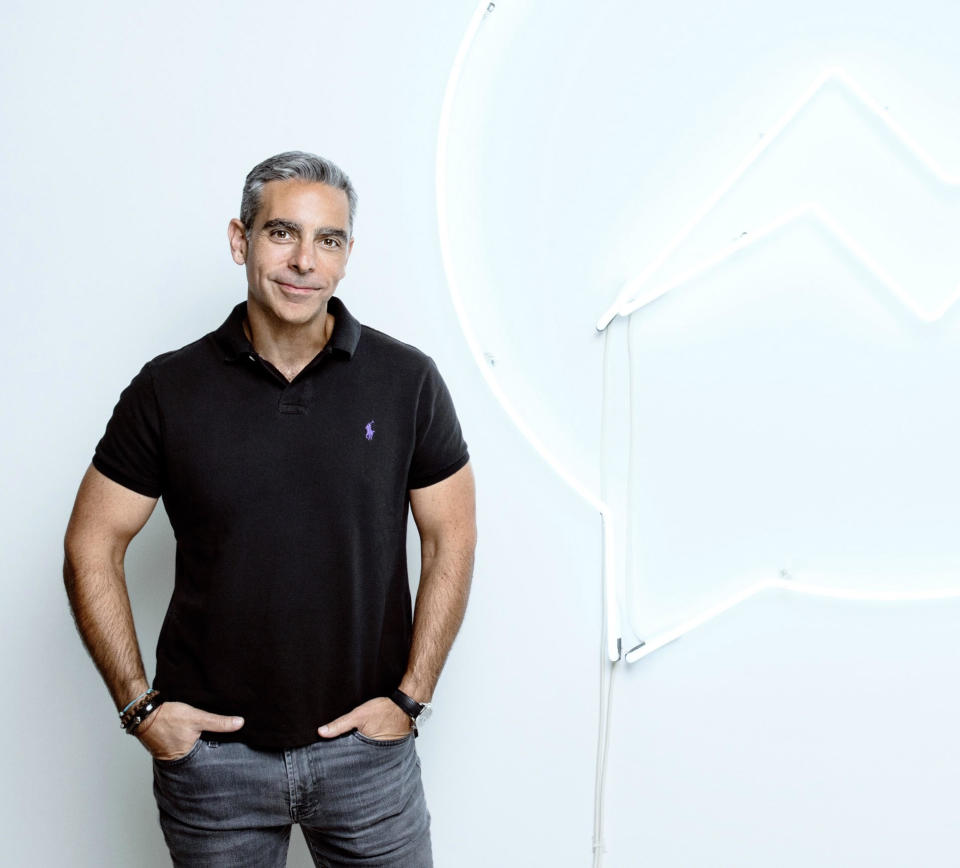Facebook Messenger's plan to get its next 1 billion users
Back in 2014, many Facebook users became incensed when Facebook Messenger was spun out into a separate app people had to download if they wanted to continue sending messages.
Three years later, many Facebook users have embraced the app that once annoyed them.
The popular messaging platform told Yahoo Finance that 1.3 billion people are using it now every month to send messages to friends as far-flung as Germany, Nigeria, Peru and Turkey — up from 1.2 billion in April. And for the first time, Messenger revealed how its Snapchat Stories-like feature, Messenger Day, is actually doing. Up to 70 million people use the feature each and every day to post video and photo updates that disappear in 24 hours, according to Head of Messenger David Marcus.
But if the road to 1 billion-plus users was paved by a slew of features aimed at consumers, what’s next?
The key to growth: getting businesses on board
Head of Messenger David Marcus contends the secret to unlocking the next billion users lies in getting as many businesses to use Messenger as possible. Of the roughly 70 million businesses currently on Facebook, over 20 million of those respond to customers via Messenger, hundreds of thousands of which do so through virtual bots that shoppers can interact with to learn, say, the status of their orders. And while Messenger remains in the early stages of making it a major go-to hub for customer service, it’s clear Marcus has huge ambitions there.
“I really, really feel that it’s going to be essential for us to be the go-to messaging app when you really want to interact with businesses,” explained Marcus, who added that 65% of interactions with large businesses still occur over the phone, whether customers like it or not.

Does he envision a day when businesses via bot replace the traditional customer service representative or call center?
“Yes, absolutely this is possible, and very likely!” he adds optimistically. “But I’d say it’s not about bots taking over customer care — it’s about messaging being the place where people will be the most comfortable communicating and interacting with businesses. Other channels are slow, often require your full attention, and don’t offer a consolidated view of all your past interaction. With Messenger, both you and the company have perfect context and never have to re-establish it again. Plus, I personally can’t wait to never, ever have to dial a 1-800 number again!”
Charlene Li, principal analyst and founder of the San Francisco-based Altimeter Group, suggests the virtual assistant “M” remains a huge trove of untapped potential. It may make minor recommendations now — Spotify tracks to play, digital stickers to send — but in a few years, M could evolve into a savvy virtual assistant that helps you truly navigate your day-to-day: booking travel, keeping track of appointments, and other administrative tasks you wish you could delegate.
Startups like Magic and Fin, a venture from former Facebook executive Sam Lessin, are also developing affordable A.I.-powered virtual assistants that could one day replace the traditional executive assistant.
“I think there’s promise in an all-knowing app that can know what you are doing and anticipate what kind of questions you want to ask by looking at your calendar and other things,” Li contends. “Those are all things, I think, there’s potential for, because of our relationship with apps, and in particular an app like Facebook Messenger.”
—
JP Mangalindan is a senior correspondent for Yahoo Finance covering the intersection of tech and business. Email story tips and musings to [email protected]. Follow him on Twitter or Facebook.
More from JP:
